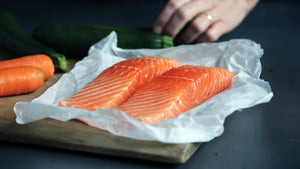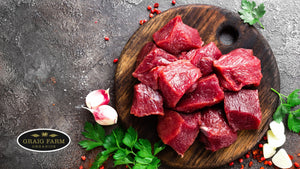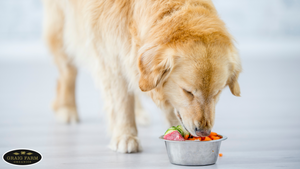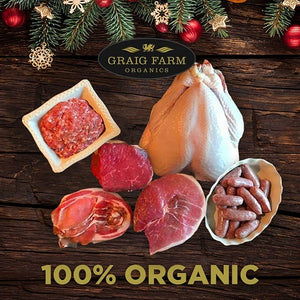What is Organic Chicken?

Chicken is one of the most popular meats in the world, making up about half of the meat eaten in the UK alone. People are increasingly becoming concerned about what’s going into their food and where it’s coming from. With food labels displaying everything from ‘organic’ to ‘pasture-fed’, it’s easy to get confused about what these different terms mean.
So what makes Organic Chicken Organic, and how does it differ from commercially produced chicken? Organic farming is defined by strict standards, covering the animals’ diets and living conditions. Here’s an overview of what makes organic and factory farmed chickens different.
Better living conditions
One of the most obvious distinctions between organic and non-organic chickens is the living conditions in which they’re kept. You’ve probably heard that sheds can house up to 30,000 chickens, giving them no space to stretch their legs, spread their wings or even turn around.
Organic chickens live in much smaller flocks with roomier houses, creating a less stressful environment for them. They must have access to the outdoors and be able to forage for food and insects, socialise with each other and express their innate behaviours. Free range chickens live a healthier, happier lifestyle that’s more natural to them.
Healthier diets
Chickens on non-organic farms are often fed genetically modified corn and soybeans, and it’s not unheard of for them to eat animal by-products too. This diet is a cost-effective way to mass produce chickens, and the health and welfare of the animals aren’t taken into account at all.
Organically farmed chickens couldn’t be more different in this respect. They must have a high quality, nutritious diet that’s free from animal offal and GMOs. At least 95% of their feed must be grown to organic standards, which ensures they’re healthier.
No growth hormones
Growth-promoting drugs are given to commercial chickens to speed up the rearing process and get them to market faster. As a result of their abnormal growth, their internal organs are damaged and their legs often can’t support their own weight.
They’re also given routine antibiotics to prevent diseases caused by their unsanitary lifestyle. Organic farming takes a more natural approach by raising them in a clean, humane way.
Healthier for you
Are you wondering what happens to the aforementioned chemicals given to chickens? They travel through the food chain, meaning you ingest traces of these chemicals when you eat these chickens.
There are numerous health benefits of organic foods like chicken. Organic chicken contains fewer pesticides and synthetic additives, and it’s leaner as a result of the animals’ healthier lifestyle. This means you get a great tasting source of protein and essential vitamins that’s much better for you.
- Tags: Chicken
- Graig Farm





